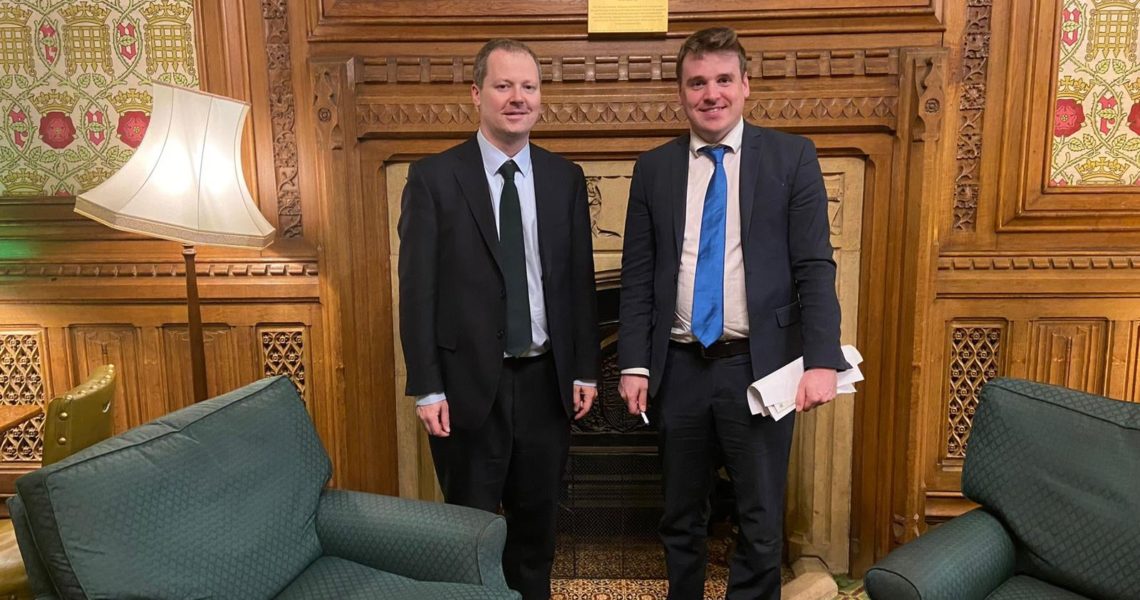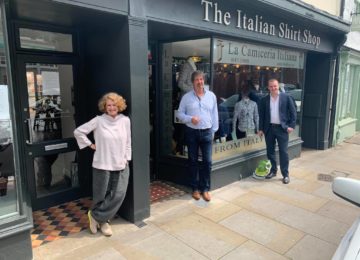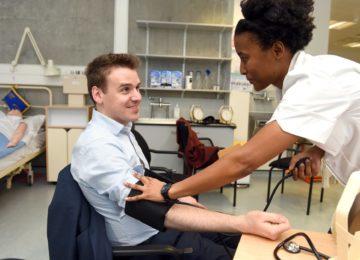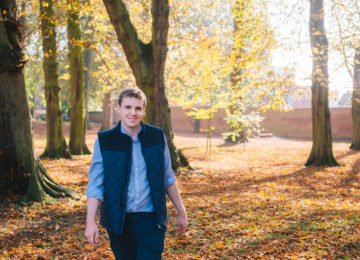Post Covid Restrictions
On TalkRADIO this afternoon we discussed moving back to normal with no restrictions. I am pleased that we are seeing the restrictions eased, that we are one of the freest economies and societies in the developed world, and that we are leading the world when it comes to vaccine rollout and opening up.
\
Today we have seen big announcements from the Prime Minister, outlining our roadmap back to normality. The government will be working with retailers to ensure that tests are still readily available to buy, and they will remain free for those in the most vulnerable categories. Testing has cost the public purse £15.7 billion so far, so it is absolutely right that we step towards balancing this cost with learning to live with the virus.
In the spring, over-75s and high-risk categories will be offered a booster to provide extra protection.
Grassroots Sport
Grassroots sport in Ipswich is something I have been trying to push for more funding on. Today I met with the Minister for Levelling Up to discuss how this can be done.
I have heard from the Department responsible for levelling up, that the levelling up fund can be used to support grassroots sports – though it is designed for facilities and specific initiatives. There are already a few ideas as to how it can be used to improve sporting facilities, and I will continue to be very involved in this.
I also want to direct funding from the UK shared prosperity fund towards supporting our grassroots sports clubs. When we were in the EU, the money we contributed was controlled remotely to feed different projects. However, now we have left the EU we can use this money to fund our own projects, with more of a local say in how this money is used. I want this money to be injected into our local grassroots sport and will be working in parliament to make sure this happens.
My Interview with GB News
I don’t often talk about the personal impact dyslexia and dyspraxia have on my life, but in an interview with GB news I spoke to Gloria about how these learning disabilities have affected me growing up, as well as at work.
It has impacted different stages of development throughout my life – I couldn’t tie my shoelaces until I was 14, or a tie until I was at university. I also speak about the importance of diagnosis and my own experience coming to terms with what my diagnosis meant.
Children’s mental health week
This week is children’s mental health week. I spoke in the chamber this afternoon on how important it is to take steps on children’s mental health – especially the need to get things right for those with special educational needs.
It has been an incredibly difficult time for young people, with disruption at school because of the pandemic, as well as the age of 24/7 social media having negative impacts on mental health.
In terms of special educational needs and disabilities, we must bear in mind how much these children struggle with disruption, uncertainty, and change to routine which we have seen as a result of the pandemic. Getting special educational needs right has a societal impact – and if we don’t get it right, it has detrimental effects to mental health. Not being understood as a result of their differences can be disastrous for young people, their mental health, and their progress in school. As someone who grew up with dyslexia and dyspraxia, I know how it feels to have learning differences misunderstood, and just how important it is that we get this right.
We need to make sure that the system is one which works for young people with special educational needs, not only to ensure every child is reaching their potential, but also because of the wider societal impacts when these students fall through the cracks.
Ministry of Justice regional office coming to Ipswich
Very pleased with the recent announcement from the Ministry of Justice that one of the 7 new regional offices will be coming to Ipswich, bringing new civil service jobs.
Today in the chamber I asked fellow Suffolk MP James Cartlidge about the timeline for these new jobs, and I look forward to hearing more updates from the Ministry of Justice on how we can make sure as many of these jobs as possible go to Ipswich people.
I hope that being one of the 7 new regional offices will mean Ipswich is at the forefront of new initiatives such as tackling domestic abuse and supporting victims, reinforcing the great work done by our local voluntary sector – with charities like Lighthouse Women’s Aid which I visited in the autumn.









